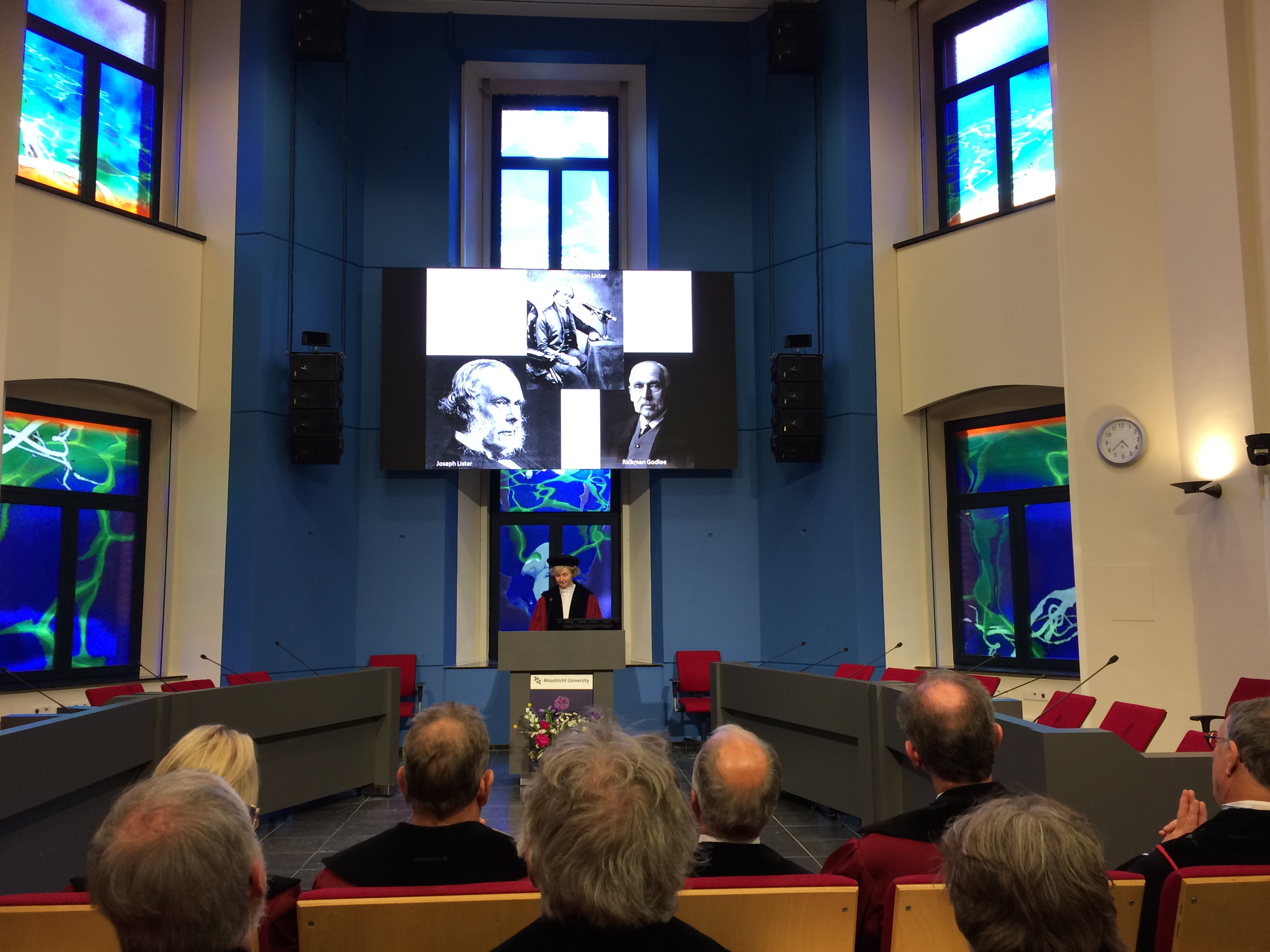CaRe days 2017
The CaRe days of 2017 were held on 18 and 19 May in Kasteel Vaeshartelt and in the Bonbonnière in Maastricht. Maastricht was once-only chosen as venue because Fiona Godlee was to have her inaugural lecture that Friday at Maastricht University. The first day, which was organized for the PhD-students of the four institutes, took place at the beautiful ‘Buitenplaats Vaeshartelt’. Almost 110 PhD students attended this day.
The day was opened by Prof. Dr. Onno van Schayck, Scientific Director of CaRe. After his welcome, Lucien Engelen gave a presentation about developments in the future, including the opportunity to collect an enormous amount of data by using technology in healthcare, such as apps and smart devices, e.g. earphones that collect biometric data. This data in turn can be a vast source of information of patients and healthy people which can be used by researchers. Elaborating on this development led to the final question: 2030; will it be possible to do a PhD in 2 years? The reactions of the audience were mixed, but overall PhD students were against this idea. One of the arguments was that a PhD is usually four years, not only because of the duration of data collection, but also because the PhD trajectory is a learning experience, which takes and needs time to form the student into an academic.
After a delicious and rich lunch, we continued the program with a workshop by Dr. Ir. Louise Mennen. This workshop was aimed at getting and implementing tips and tricks about how to network, and to shift the pre-assumption that networking is boring or scary into the experience that it is fun and very useful. After a short break, we split up in smaller groups where approximately nine PhD students per group gave a presentation about their own work, but not after we got some last tips from Louise Mennen on how to make and give a good and interesting presentation. Some tips: do not use your slides as your own notes to remember what you were going to present, if possible use pictures possible instead of words, have a clear key message and perhaps start with this key message, always think about the audience when preparing your presentation, and start your presentation by using a personal story to directly involve your audience. The day ended with drinks and dinner. Most PhD students had the opportunity to spend the night at the lovely country estate.
On Friday more researchers joined the CaRe days in the theater of the Bonbonnière in the city center of Maastricht. After a warm welcome by Onno van Schayck, the first presentation was held by Dr. Radjesh Manna, Director of ZonMw programs. He elaborated on the new ZonMW program Fostering Responsible Research Practices, which is divided into four interrelated “pillars” or subprogrammes, all with both practical and policy-related aspects being: Enhancing knowledge of responsible practices, a national audit of research practices, with the best of these shared throughout the scientific community, Improving our understanding of project lifecycles in research and a national study of scientific integrity. The second part of the Friday-morning program consisted of a workshop by Diane Schöller about valorization. She explained about the importance of valorization and the role IXA (Innovation exchange Amsterdam) could play in this. We then split up in small groups to talk about our own projects and share ideas about valorization. When thinking about your own project or new projects it is good to keep several questions in mind: 1) what is the idea?; 2) What problem/issues are you solving?; 3) What advantage does it offer for existing solutions?; and 4) Who benefits from the solution? After again an extensive lunch, we continued the program with Prof. Dr. Hans Bennis, who is a KNAW member of the commission Standard Evaluation Protocol spoke about the impossibilities to judge research only in quantitative measures. Traditionally, at the end of the CaRedays it was time to announce the nominees and the winners of the CaRe award 2016. Yes, you’ve read it correctly, plural. Two PhD’s finished their thesis last year which were evaluated equally good. Therefore, an exception was made and both Dr. Willemijn Schäfer and Dr. Annerika Slok received the CaRe award 2016. Annerika gave an inspiring impression of the PhD study she has done.
The final part of the Research day program was the Inaugural Lecture of Prof. Fiona Godlee, editor of the BMJ. She is the first professor appointed by research school CaRe, which makes her position unique. During her inspiring lecture she spread her vision on excellent research, research integrity, and the important role journals can play in this process. In summary we can look back on two successful CaRe-research days.




